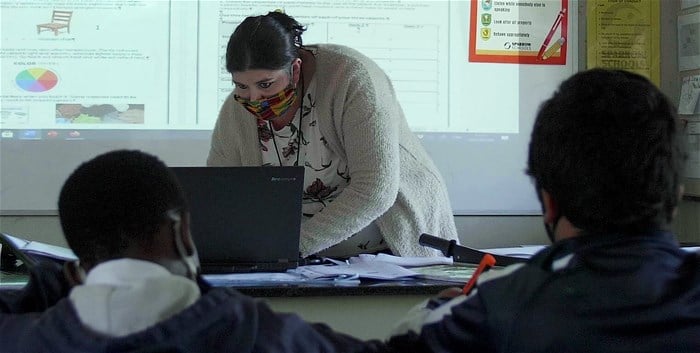While the most recent shift to hybrid learning happened quite quickly as a result of the pandemic and lockdown, the education technology landscape of the future is likely headed in an even more integrated, accessible and intelligent direction. This is apparent based on the opportunities that a more digitally integrated curriculum presents.

Image: Supplied
The push to adapt to virtual learning following the onset of Covid-19 all but forced educators, parents, learners and government to acknowledge that online learning was no longer a pipe dream, but an absolute must to ensure learners were able to stay on track with the school year.
In the process, the digital divide that has long existed in South Africa became even more apparent, as many learners across the country – particularly those in poor and rural communities – struggled to connect to online learning opportunities and as a result, fell even further behind. In many unfortunate cases, learners dropped out of school entirely.
Investing in education
As South Africa’s education sector learns to find its feet in the digital learning space, the country has welcomed the widescale investment being made into education technology. Important initiatives like the UCT online high school that opened its doors this year, and FoondaMate, which allows learners to easily download a wealth of learning resources via WhatsApp, are just some examples of these investments.
Other initiatives include iSchool Africa, an NPO that provides learners from under-resourced communities with digital libraries consisting of a mobile iPad lab specifically geared for use by all learners from various classrooms in a school. Fibre network operator, Vuma, joined in by providing free fibre connectivity to all schools that fall within their network and are part of the iSchool Africa initiative.
“Our goal is to not only play our part in helping bring meaningful digital experiences to classrooms across the country and create access to opportunities for all, but to ensure that we are also helping achieve service delivery priorities to schools and institutions of higher learning, as well as to unemployed youth,” says Lianne Williams of Vuma.
These investments into more connected learning opportunities for learners in South Africa pave the way for the transformation of traditional learning experiences. For instance, the increasing adoption of digital technology creates more room for the use of immersive technologies like virtual reality and augmented reality, allowing learners to experience the ‘classroom’ without needing to be physically present.
Personalised learning
The increased adoption of digital technology could also make learning more personalised to the needs of individual learners. For example, in the case of learners from disadvantaged backgrounds who may struggle with particular subjects, artificial intelligence can alert an educator to their progress and weak areas, allowing them to offer the learner extra lessons or more one-on-one learning time to close the education gap.
Having all of this information at their fingertips means that educators and institutions can easily identify and measure the effectiveness of the way curriculums are being taught and make adjustments where necessary to avoid students falling too far behind.
Digital technology has opened the floor to a wealth of educational and learning opportunity that is waiting to be tapped into. As the demand for more fluid digital learning experiences continues to increase, it’s vital that South African stakeholders across the board – from government and private sector to educational institutions – take the necessary steps that will allow learners to take full advantage of all of these opportunities, in order to build the bright futures they deserve.



































